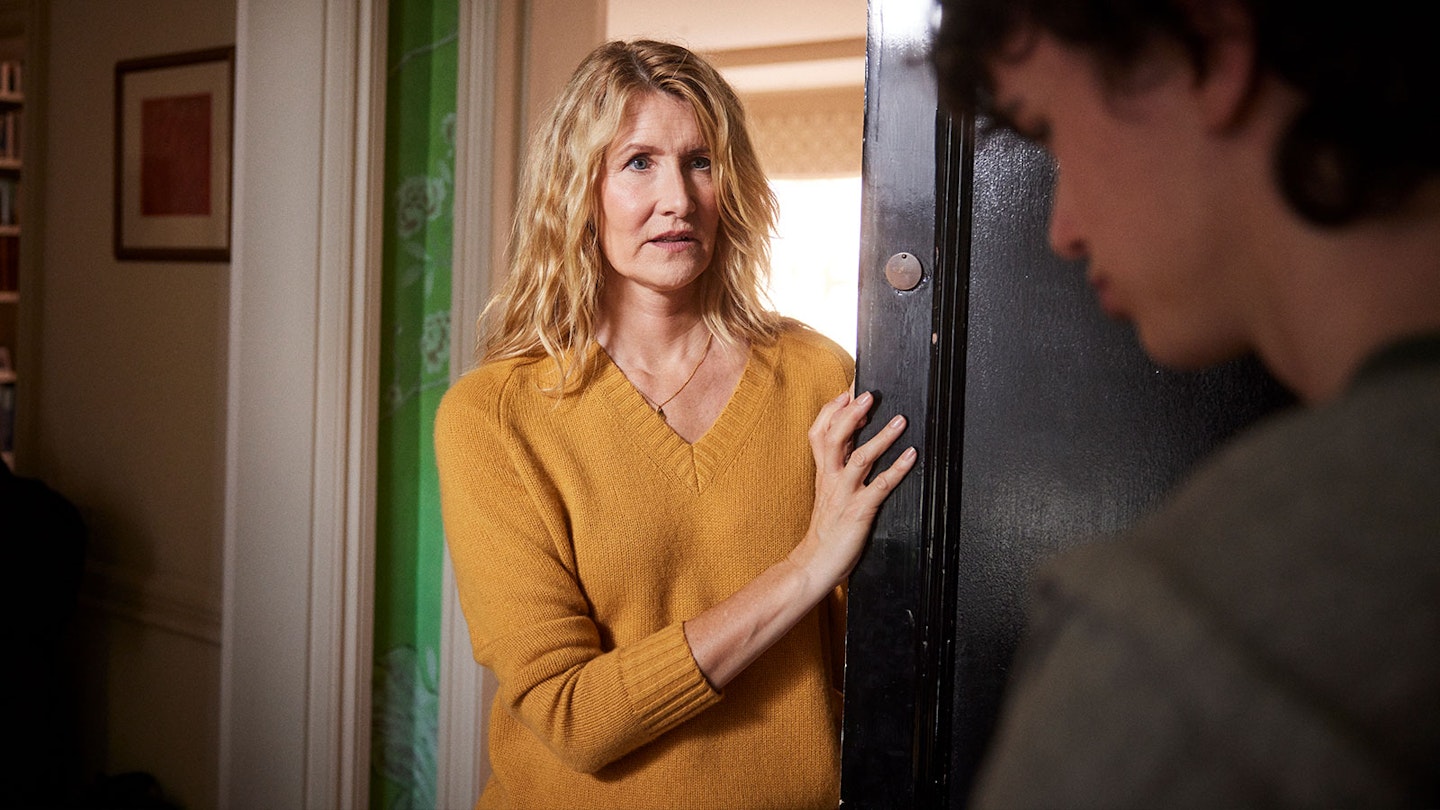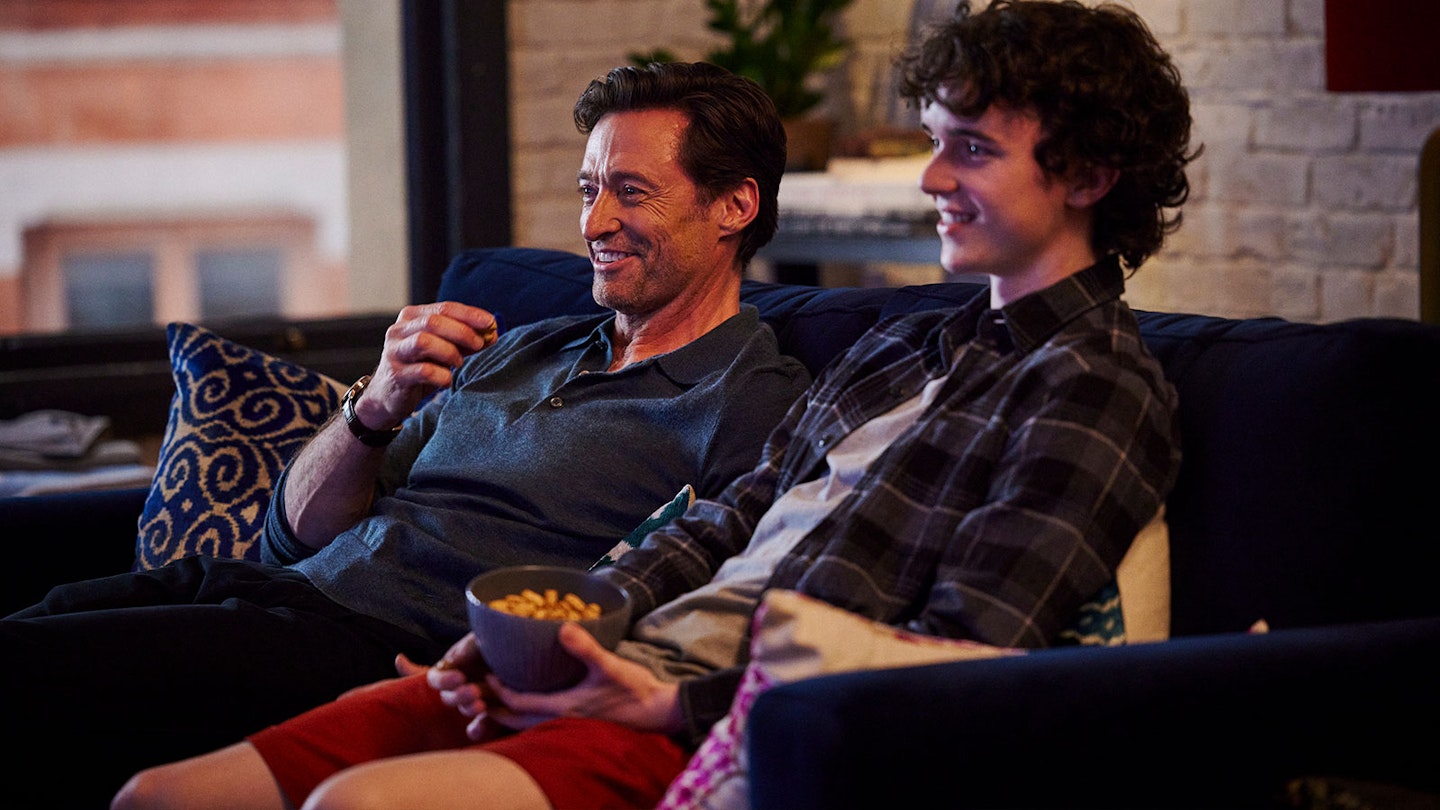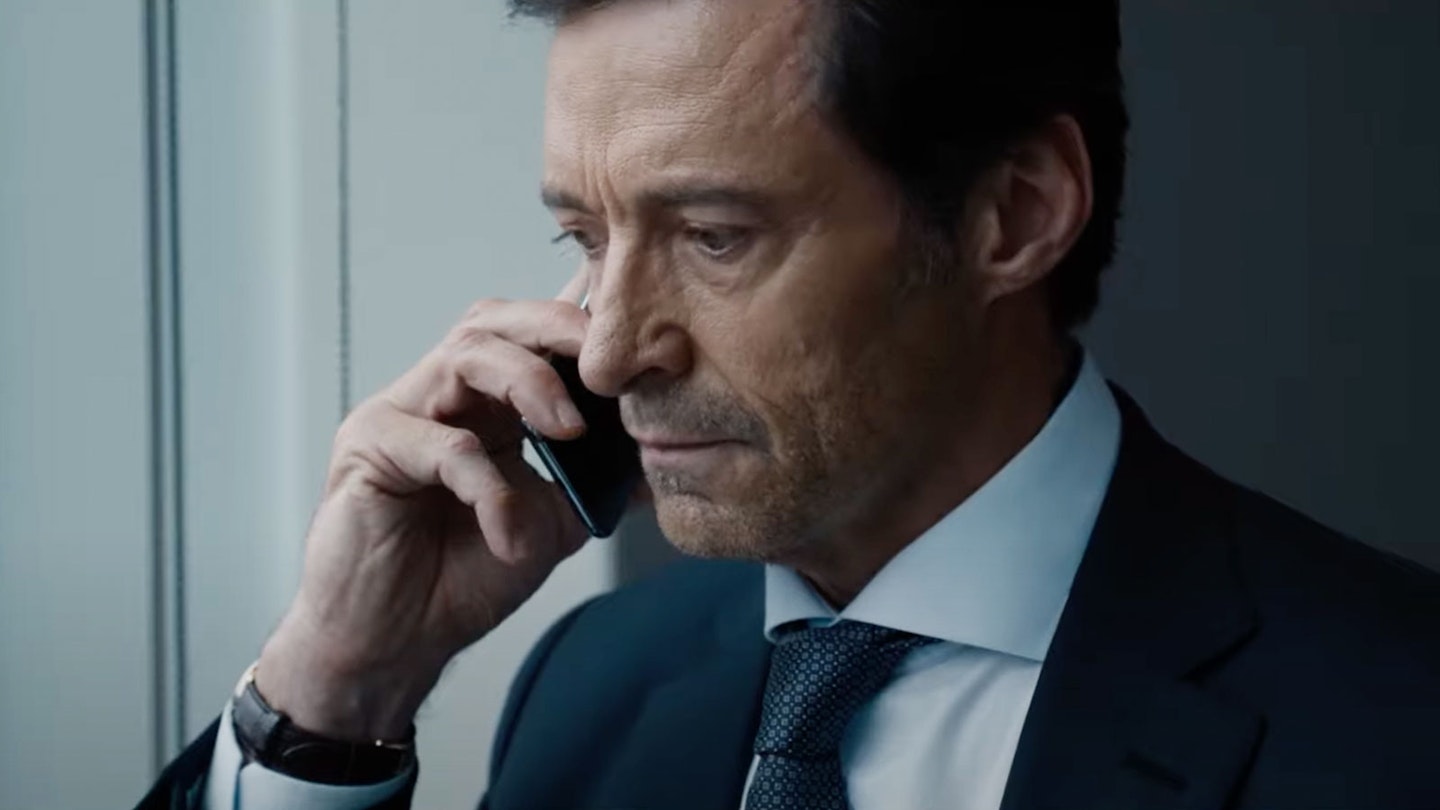When Florian Zeller first adapted one of his own plays for the screen, the result was one of cinema’s most remarkable depictions of ageing. In The Father, he put the audience, movingly and terrifyingly, inside the head of a man succumbing to dementia, reality constantly shifting in a way neither he nor the audience could keep up with. The Son is another adaptation of a Zeller play (The Mother, as yet to be adapted, rounds out that stage trilogy). It’s another moving story, though sympathy is more baked into its premise than earned through the storytelling. It’s a familiar tale solidly told and well-acted, but without the remarkable invention of The Father.
Hugh Jackman reminds everybody what a strong dramatic actor he is, in his sturdiest role in years. He plays Peter, a successful Manhattan lawyer who has a new wife, Beth (Vanessa Kirby), and a new son. His first wife, Kate (Laura Dern) — whom he left for Beth — and teenage son Nicholas (Zen McGrath) are inconveniently keeping him from moving on. Nicholas is having terrible issues with his mental health, unable to face school and feeling permanently sad. He begs to come and live with his dad. Both hope it will fix everything, but Nicholas’ health gets steadily worse.

There are some lovely scenes between Peter and Nicholas as they try to figure each other out, and a brief appearance by Peter’s own dad (Anthony Hopkins, walking off with the whole movie) gives interesting framing to Peter’s view of his son. Much of it, though, is played at a curiously melodramatic pitch. It’s not fully stagey, but there is an edge of artifice. Zeller presses hard on emotional moments to extract maximum pain, but it becomes more exasperating than affecting.
Everything is a little too self-conscious, but the longer the film goes on, the more it seems this artifice might be a deliberate choice
Nicholas is given to big speeches, expressing his torment in long, earnest monologues that don’t sound spontaneous. The characters often act as they should to keep the plot moving, rather than how they might believably behave. Beth, who has been nothing but kind to Nicholas, suddenly shouts terrible things about him in a tiny apartment where she will obviously be overheard. Wealthy Manhattanites Peter and Kate are remarkably uninformed about therapy. Everything is a little too self-conscious, but the longer the film goes on — and it does rather go on — the more it seems this artifice might be a deliberate choice, to make the entire world as dishonest and uncomfortable as Nicholas sees it.
The cleverest aspect is the way Zeller leaves the ending hanging over you like a curse. The seeds as to where the film might be going are sown early on, but the film quietly suggests many ways they may come to fruition. When the ending comes it’s simultaneously shocking and bleakly obvious. It’s a shame Zeller didn’t just let it sit starkly alone instead of adding a syrupy coda. Like much of this film, it could have been more effective by holding a little back.



